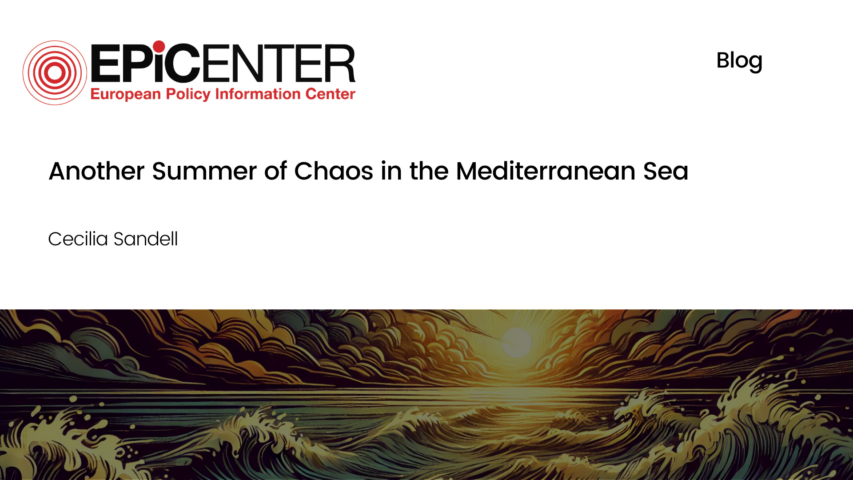Another Summer of Chaos in the Mediterranean Sea

Another Summer of Chaos in the Mediterranean Sea
Cecilia Sandell // 25 July 2017
On 26 June, we published a blog post examining the previous efforts made by the European Union in order to manage the current migration crisis. It showed that the EU-Turkey deal has proven somewhat successful with the EU being able to close one of its major migrant routes. However, the Central Mediterranean route (via Libya) still exists and it is very difficult to control.
With the end of July approaching, it is becoming clear that the European Border and Coast Guard Agency (EBCG), launched in October 2016, might not have been as effective in managing the larger migration flows during the warmer summer months as everyone had hoped. According to UNHCR, around 73,000 migrants arrived via sea between May-July 2016. This is compared to the 65,000 and counting migrants arriving between May-July 2017. With this worrying development and the forthcoming parliamentary election in Germany, Austria and Italy, Brussels has responded with a few new measures to this ongoing problem.
On 4 July, the European Commission´s realised a new action plan that aimed to present measures to support Italy, reduce pressure along the Central Mediterranean route and increase solidarity among EU Member States. The plan calls for both short-term and long-term measures. As short-term actions, the plan calls for the EU to mobilise another EUR 35 million for Italy to help the country implement the new reforms put in place by the Minister of Interior Mr. Minniti. At the same time, increased coordination of the Search and Rescue (SAR) activities around the Mediterranean and a step up to enhance the Libyans capacity to control borders were proposed. More long-term actions were also suggested, such as increasing funding for North Africa to ensure sustainability and making progress on the proposed reforms to the Dublin System.
Alongside this action plan, there is currently a European Parliament legislative proposal aimed at this migration issue. In a similar way to the Commission´s, the proposal “Migration on the central Mediterranean route – managing flows, saving lives” calls for strengthening the Libyan Coast Guard, building partnerships along EU´s southern border and mobilising funds for North Africa. Moreover, there is also another legislative proposal currently in parliament solely aimed at migrant children and their well-being.
Although these new efforts are noble, are they actually effective? The “Migration on central Mediterranean route – managing flows, saving lives” proposal was finalised in late January, but it is still in a preparatory phase in parliament and it is not likely to progress to a further stage until September, at the earliest. In short, too little, too late, once again. On top of this, the latest Commission´s action plan is not bringing much hope either – mostly repeating and rephrasing actions already listed in the legislative proposal. Something that the Commission´s First Vice President Frans Timmermans made clear by lowering expectations when presenting it and stating “I am not saying we’re coming out with a silver bullet, that there’s one measure that’s going to solve all this”.
Meanwhile, migrants will keep risking their lives on the Mediterranean Sea this summer, and the UN Refugee Agency estimates that more than 2,300 people have died or gone missing during the first half of 2017. The Brussels procedures might be known for being overly bureaucratic, extensive and rather lengthy – but this is a troubling issue that needs a fast solution. Ironically, a silver bullet would be preferable.
EPICENTER publications and contributions from our member think tanks are designed to promote the discussion of economic issues and the role of markets in solving economic and social problems. As with all EPICENTER publications, the views expressed here are those of the author and not EPICENTER or its member think tanks (which have no corporate view).



